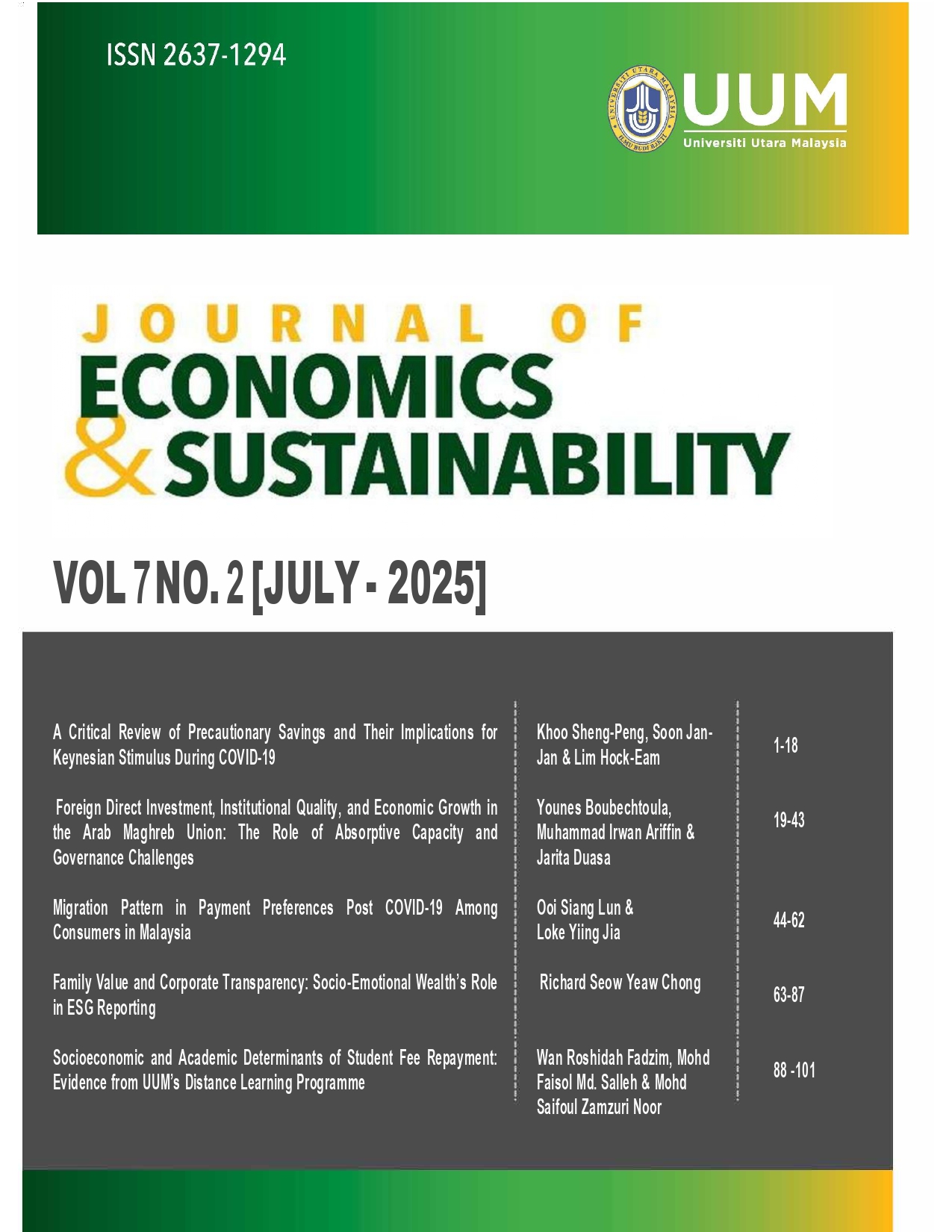FOREIGN DIRECT INVESTMENT, INSTITUTIONAL QUALITY, AND ECONOMIC GROWTH IN THE ARAB MAGHREB UNION: THE ROLE OF ABSORPTIVE CAPACITY AND GOVERNANCE CHALLENGES
DOI:
https://doi.org/10.32890/jes2025.7.2.2Abstract
This paper investigates the direct effects of FDI inflows and institutional quality on the economic growth of the Arab Maghreb Union (AMU) countries over the period 1996 to 2022. The study also evaluates whether institutional quality influences the relationship between FDI and growth by incorporating an interaction term between FDI and institutional quality. Institutional quality is measured using the control of corruption score of the Worldwide Governance Indicators (WGI). The analysis is based on panel data estimation models, with the Hausman test applied to choose between the fixed effect model (FEM) and the random effect model (REM). The results reveal that FDI inflows do not significantly impact economic growth in AMU countries. Also, institutional quality does not directly influence economic growth, reflecting the underdevelopment of institutions in the region. Instead, the coefficient of the interaction term is negative and significant, suggesting that institutional quality negatively impacts the FDI-growth relationship. Inflation and labor force index are found to significantly and positively influence economic growth. Surprisingly, the human capital index exerts a negative effect on economic growth in AMU countries. The policy implications in respect of these findings include that the policymakers in the AMU countries should pay specific attention to the development of human capital and improving absorptive capacities from institutional quality to perceive FDI as a growth driver.
Downloads
Published
Issue
Section
License
Copyright (c) 2025 Journal of Economics and Sustainability

This work is licensed under a Creative Commons Attribution 4.0 International License.






